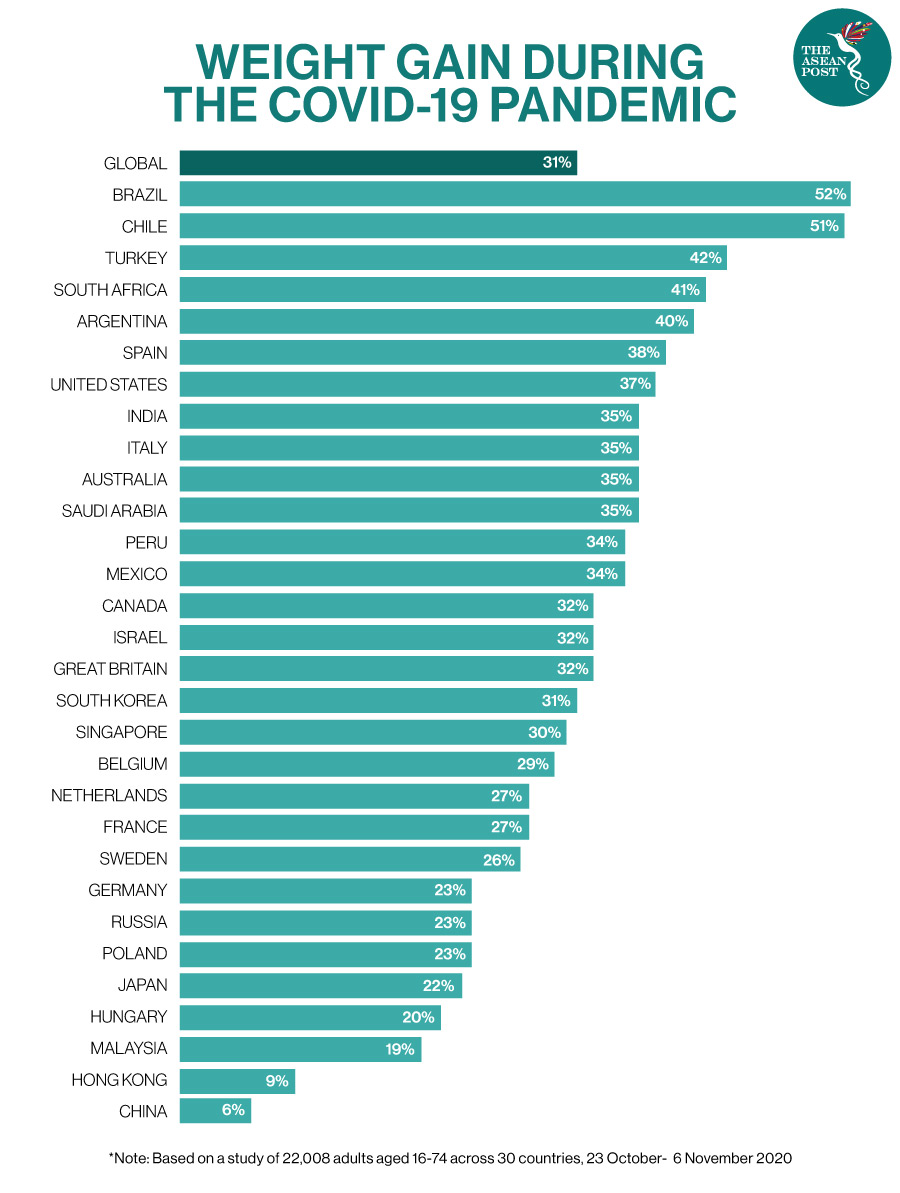Over four million people die each year across the globe as a result of being overweight or obese.
According to the World Health Organization (WHO), overweight and obesity are defined as abnormal or excessive fat accumulation that presents a risk to one’s health. From 1975 to 2016, the prevalence of overweight or obese children and adolescents aged five to 19 years increased more than four-fold from four percent to 18 percent globally.
The numbers for overweight and obese adults and children continue to grow, everywhere around the world. The WHO noted that currently, there are more obese than underweight people in every region except in sub-Saharan Africa and Asia. Nevertheless, overweight and obesity are now significantly on the rise in low- and middle-income countries.
Studies show that being overweight and obese can have a serious impact on health. Carrying extra fat leads to serious and fatal health consequences such as cardiovascular diseases like heart disease and stroke, type 2 diabetes, and breast and colon cancers.
In research conducted by the American Heart Association, it was found that people with obesity, regardless of age, are more likely to be hospitalised with COVID-19 with a higher risk of complications and death.
“We didn't expect the results to be so striking for young adults,” said lead author Nicholas Hendren. “If you're in your 20s or 30s or 40s, you're not bulletproof if you're severely obese.”
Patients with severe obesity had slightly more than double the risk of being put on a ventilator and a 26 percent higher risk of death compared to normal-weight patients, according to the research. It also noted that patients with a higher Body Mass Index (BMI), no matter what age, were at higher risk of blood clots, and in need of kidney dialysis.
“Young adults might feel like they're immune, but this shows if you're young, obesity is an important risk factor,” said Sadiya Khan, a preventive cardiologist at Northwestern University in the United States (US).
Weight Gain And Loss
Ipsos, the world’s leading market research company, in a new study released last month suggested that almost a third of people globally have gained weight during the pandemic, despite awareness linking obesity to COVID-19.
The study, carried out in 30 countries including ASEAN member states Malaysia and Singapore, found that those who gained weight during the health crisis put on an additional 6.1 kilograms. The largest weight gain was seen in Saudi Arabia – with an average of eight kilograms for the 35 percent of the population who gained weight – and Mexico, with an average of 8.5 kilograms for the 34 percent who gained weight.

Ipsos cited changes in lifestyle or health related behaviours as the cause for the weight gain/loss in some countries. For example, in China, where less than one in 10 said that they had gained weight, the study found that more than half of people surveyed in China (57 percent) had done more exercise since the pandemic began. However, more than a third of those in Belgium, Chile and Italy exercised less.
Moreover, one in 10 globally started drinking more alcohol since the start of the pandemic, while shifts in smoking habits changed by a few percentage points across the globe – four percent giving up, and three percent taking up smoking.
Closer To Home
Obesity is rising fast in Southeast Asia, especially in Singapore, Malaysia and Vietnam. Between 2010 and 2014, obesity surged 24 percent, 27 percent and 39 percent in the aforementioned ASEAN member states, respectively. If left unaddressed, this epidemic could exact steep human and financial costs.
According to the World Population Review 2019, Malaysia had the highest prevalence of obesity among adults in the region at 15.6 percent. Whereas in the National Health and Morbidity Survey (NHMS) 2019, it was reported that 50.1 percent of adults in Malaysia were either overweight (30.4 percent) or obese (19.7 percent). The country is also said to be the most obese country in Asia.
Nevertheless, on the bright side, the recent Ipsos study revealed that 36 percent of Malaysians lost weight during the pandemic and only 19 percent experienced an average weight gain of almost five kilograms. The research also showed that 72 percent of Malaysians have cut down on sugar on their path to a healthier lifestyle while 35 percent were willing to give up or reduce carbohydrates.
The same cannot be said of Singapore, however.
Almost one third, or 30 percent of Singaporeans said that they gained weight during the COVID-19 pandemic with an average weight gain of 4.8 kilograms, based on data from Ipsos.
Despite it all, the good news is that overweight and obesity are largely preventable. More than half – 55 percent – of Singaporeans surveyed said they are trying to lose weight. The WHO said that the key to success is to achieve an energy balance between calories consumed on one hand, and calories used on the other.
Related Articles:
